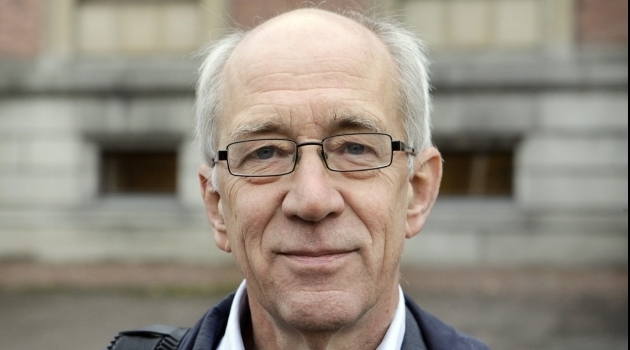Professor of antibiotic resistance Cars to be awarded the King’s Medal
Otto Cars, professor of Infectious Diseases at Uppsala University, has spent more than 20 years spreading the word about the risks of antibiotics resistance. Now, he is being awarded H.M. The King’s Medal for his contributions to the betterment of mankind.
‘I’m thrilled, naturally, to be acknowledged for my work in the field between science and politics for more than 20 years, you could also call it a form of Science outreach. It’s been a question of disseminating information from a well-supported position of science and driving the issue toward political decisions, both national and international’, he says.
To patiently work with endless engagement for such a long time trying to raise awareness of a single issue, what’s it been like? 20 years ago, would he ever have hoped the current level of international interest could be achieved?
‘Of course it hasn’t always been easy getting through to the international community and the WHO, convincing them of the gravity of the situation and the importance of devoting the resources required. But my worry for the future of my children, my grandchildren and the rest of the world’s children has kept me brimming with energy’, Otto Cars says and adds:
‘But it goes without saying that I haven’t been acting alone, many others have sounded the alarm over the years. Even Fleming, who discovered penicillin, predicted this risk, all the way back then. The support of the Swedish government, Sida and Uppsala University has been instrumental in allowing me and my colleagues in Sweden and other countries to work purposefully and long-term.’
The question of antibiotic resistance is one attracting great international interest at the moment. The WHO recently decided upon a global plan of action against antibiotic resistance, and the US and the EU are increasing their funding of the issue. In the UK, the question is hotly debated, and there are several inspiring examples of success to be found throughout the world, for instance in Ghana and Thailand, where more responsible use of antibiotics has been achieved. The international network ReAct in Uppsala, of which Otto Cars is a founder, persists in its opinion-forming endeavors, including launching a web-based “toolbox” earlier this spring, which has been designed to pedagogically guide users towards an appropriate level of antibiotic usage and behaviors. In addition, Uppsala University has decided to establish an Antibiotics Centre with an interdisciplinary focus.
‘Yes, it’s been a quick and widespread awakening and as we now are starting to see suggestions for practical solutions, I hope the damage that was accrued during the many years lost can be repaired. But there is still a great deal of work to be done; it will take political courage, will and financing.’
The top-level conference Uppsala Health Summit held last week clearly shows that the question of antibiotic resistance is high on the agenda and that there is international confidence in the competence available to Uppsala in this area. So what is Otto Cars’ take on the summit?
‘I’ve been to a lot of conferences, but the difference between this one and all the others is that it isn’t about outlining the problem. That’s been dealt with, and instead the focus is on the solutions and the future. I found there to be a great energy and determination and it was particularly refreshing to see so many southern nations represented, as they face the most difficult challenges today’.
The medal awarded to Otto Cars is of the 8th size and suspended by the Order of the Seraphim ribbon. The ceremony will be held on 16 June.
Anneli Waara

